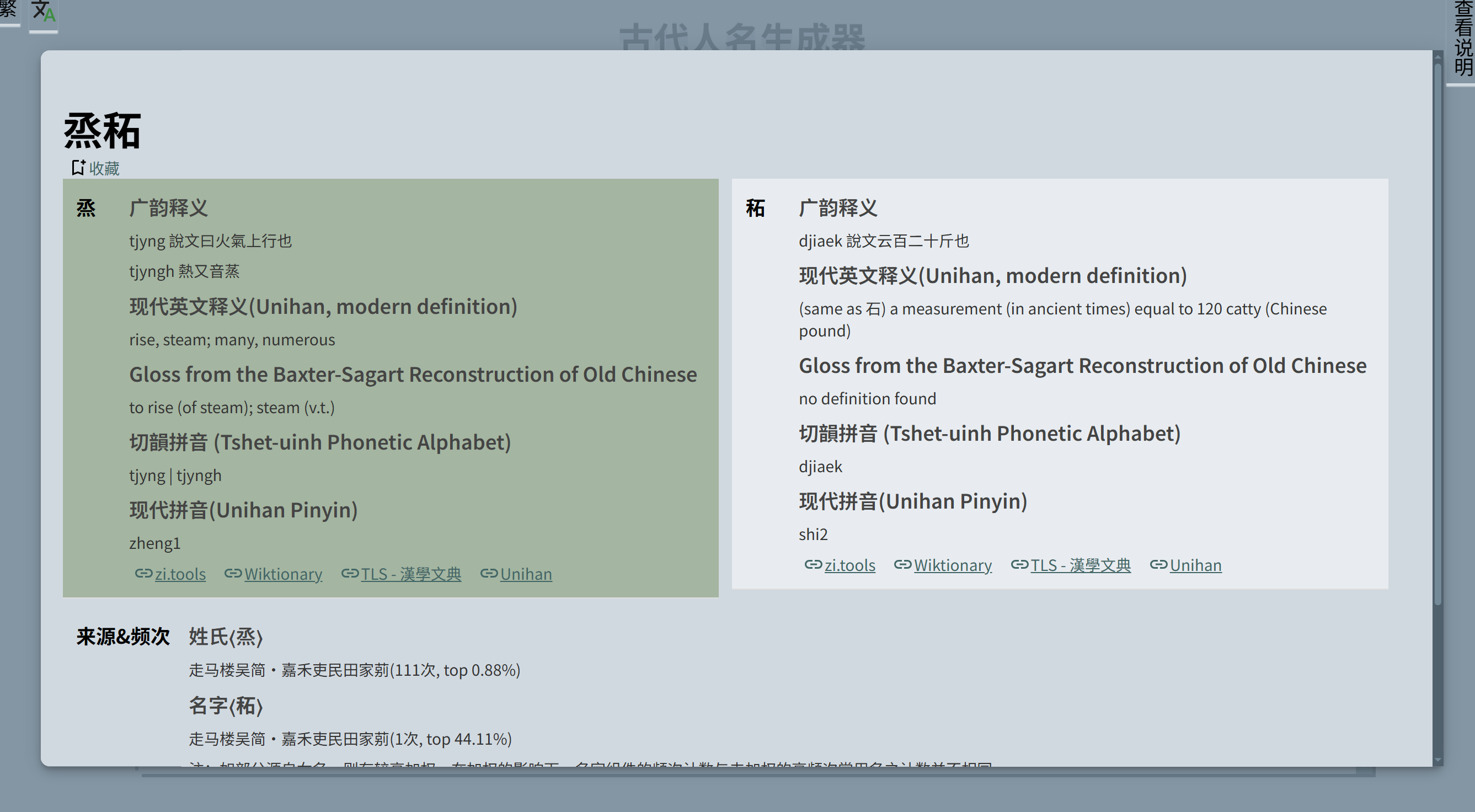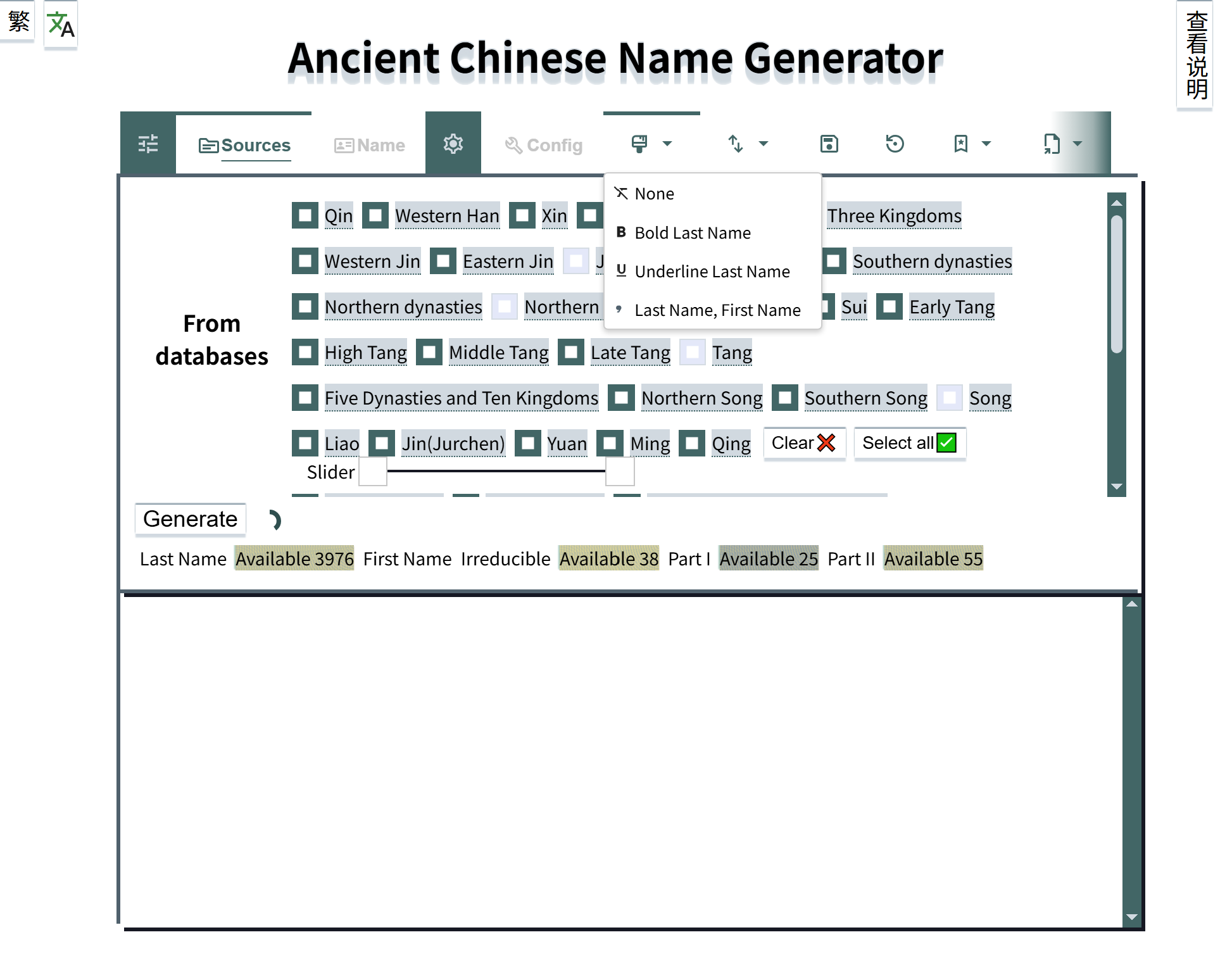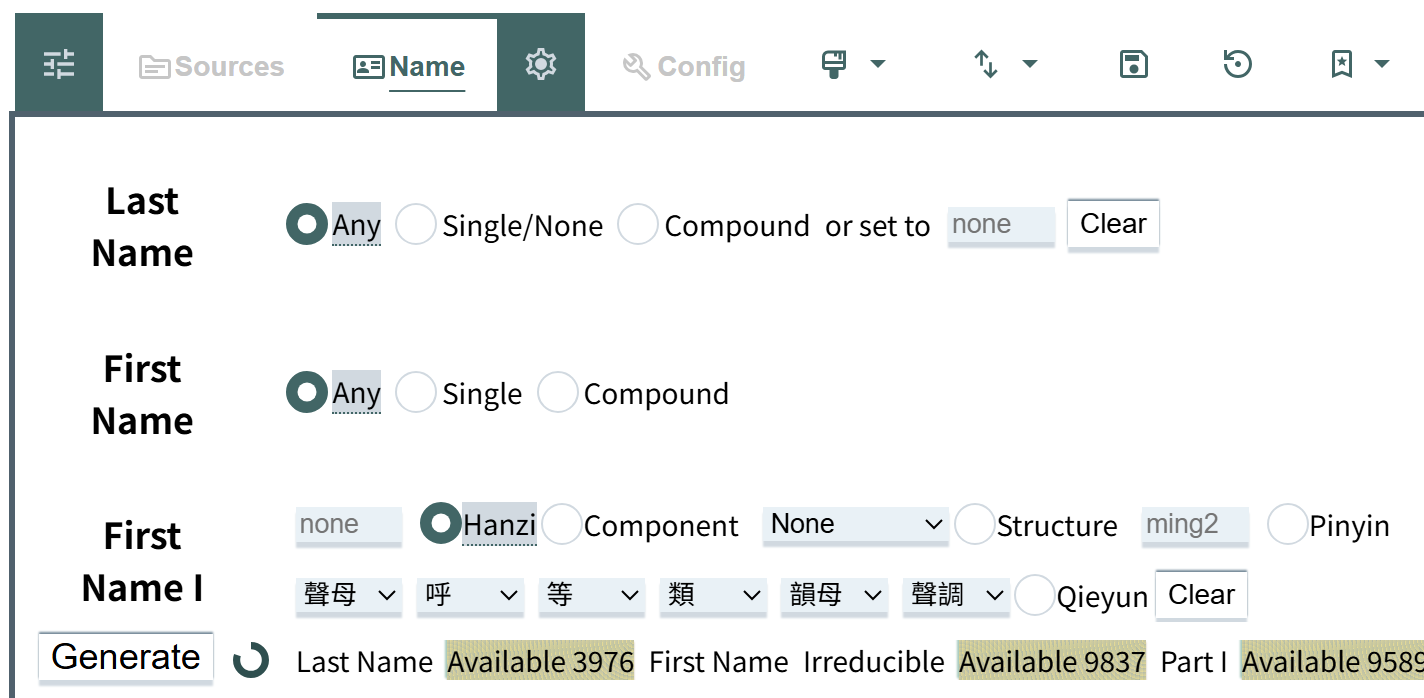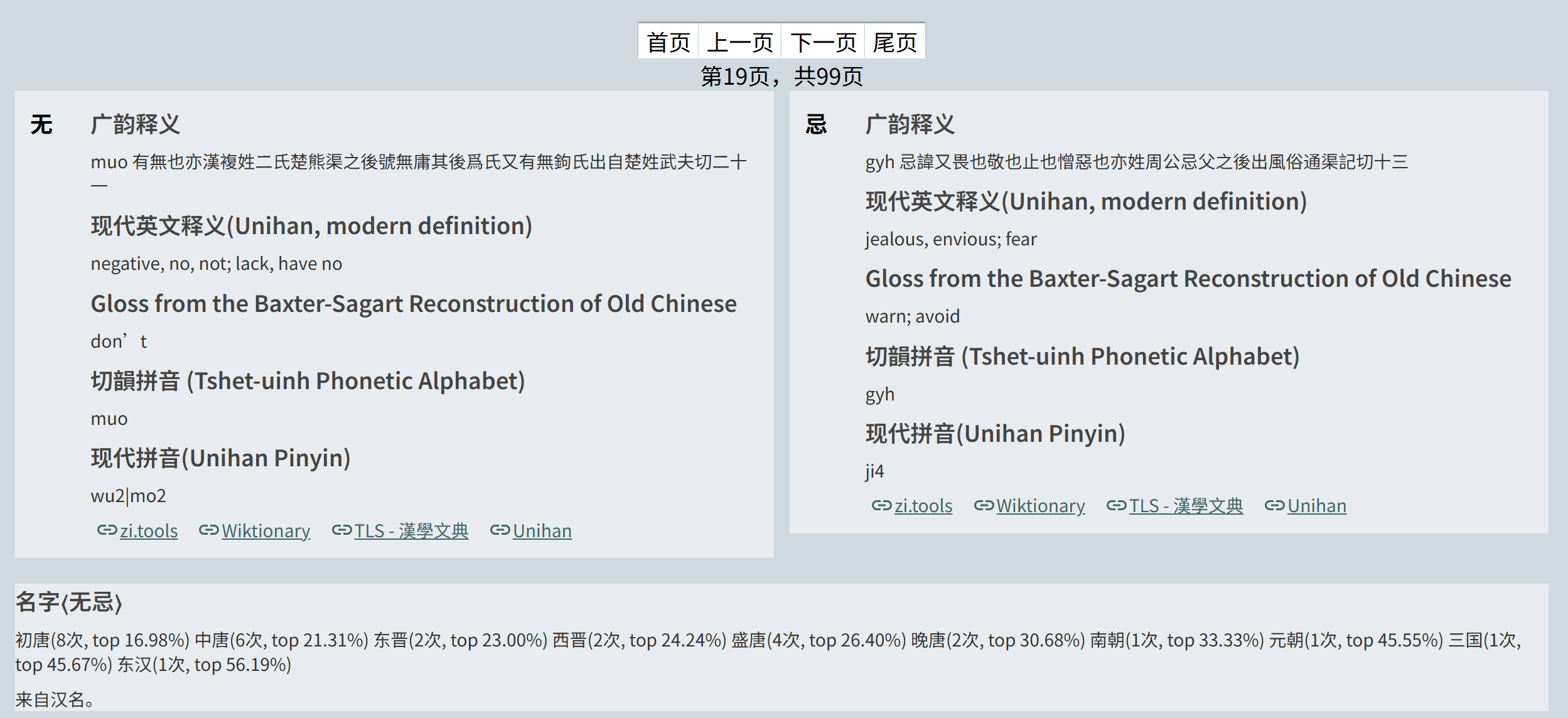Getting Started
How are names generated
Single-character names and names that should not be splited, or multi-character names with fixed meanings are treated as 整体 irreducible name components. Other names are split into two parts depending on the situation, treated as Part I and Part II.
In the generator, based on the processed components, names are generated in the format of "last name (can be empty) + first name". The first name can either be a irreducible one or a Part I + Part II combination. Further filtering may be applied based on options.
Interface
The main interface of the generator is divided into three areas: Menu, Options, and Name Overview.
Settings and Functions
The menu provides:
- Setting tab switching.
- Name formatting and sorting.
- Basic functions including: exporting, copying, bookmark manager, and saving and loading options.
You can set the following options:
Currently, names are from three different categories.
- Databases. A combination of CBDB and cnkgraph and female name collections, divided by historical periods from the Qin to Qing dynasties.
- Bamboo documents. Includes Qin Jian 秦簡, Han Jian 漢簡, and Wu Jian 吳簡.
- Western Xia/Xi Xia. Since these names are all extracted from one book, they are categorized separately.
You can apply the following constraints related to names:
- Length of the last name and first name. Single, compound, or unset.
- Each name component (irreducible, Part I or Part II) can be filtered by radicals, components, character structures, pronounciation.
- Groups of name origin, like ethnicity and religion.
Available components is calculated in real time (1) to speed up the generation of names. Although the algorithm is optimized compared to previous versions, when all sources are selected, the dataset is pretty large and might cause slight delays. Names are generated from these preprocessed subsets of components, and will be generated quickly when there are enough available components. Otherwise(2), the repeat-until-success mechanism may lead to slow speed and a less number of generated names.
- Click
Available xxxxto view the list of available components. - Especially when you fix the last name.
Quote
An old engineering slogan says, "Fast. Cheap. Reliable. Choose two."
— Williamson & Shmoys, The Design of Approximation Algorithms, Cambridge University Press, 2011.
To the right of the "Source", "Name", and "Configuration" tabs, there are several menus and buttons. Hover or click to view the explanations:
| Icon |
|---|
Local Storage
The environment and bookmarks of names are stored locally in your browser and can be retrieved on your next visit. But this storage is not shared across different browsers.
Name Overview
Click Generate to get names.
Viewing the Details
Click a name or a component to view its details.
 For each character, definitions from Guangyun, English translations for modern and old meaning, Qieyun-style pronunciation, and pinyin (1) are listed. "來源&頻次 Source & Frequency" provides statistics from currently selected sources.
For each character, definitions from Guangyun, English translations for modern and old meaning, Qieyun-style pronunciation, and pinyin (1) are listed. "來源&頻次 Source & Frequency" provides statistics from currently selected sources.
- Definitions from Guangyun and Qieyun phonology are from TshetUinh.js. Modern glosses and pinyin are from Unihan. Old Chinese glosses are from Old Chinese: A New Reconstruction by Baxter & Sagart, which I think is the best available English definitions I can find online. Note that the book Old Chinese: A New Reconstruction claims
The English glosses are for identification only and are not intended as definitive semantic reconstructions.
Chossing the Language
By clicking on the two buttons on top left area, you can switch between Simplified/Traditional Chinese and English. This is implemented by opencc-js. Switching between SC/TC will convert all the contents, but only the menu and setting labels are translated into English. Generated names are still in Chinese.
Technical Info
Environment
You only need a browser, wheter it's on a mobile device or a desktop, and Internet access, to use this generator.
Some third-party JS libraries and fonts are required.
Itch.io account is not necessary unless you want to leave comments, rate something, or use their desktop app.
Note: Though the code is open-source, local use still requires online access to those third-party JS libraries. See User Guide > Source Code and how to build the generator locally for details.
Fonts & Compatibility
The generator uses Noto Sans from Google Fonts. If it's not loaded, the browser’s default fonts are used as fallbacks. Some rare characters may not display unless your browser supports rendering characters from the CJK Unified Ideographs Extensions. Use ctext's font test page to check this.







